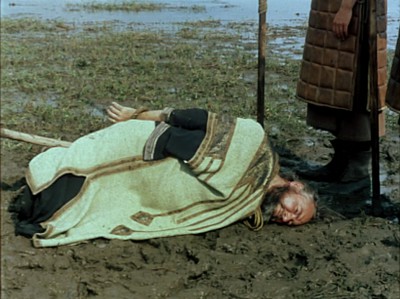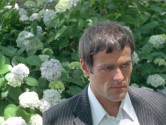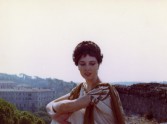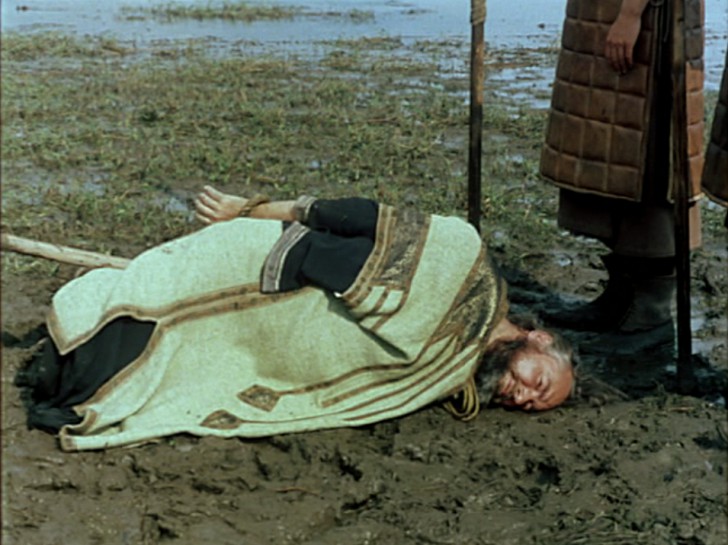
Moses and Aaron
Introduction to Arnold Schoenberg’s ‘Accompaniment to a Cinematographic Scene’
Join us in the galleries of the Carpenter Center on Level 3 at 6pm for a final viewing of the exhibition Jean-Marie Straub and Danièle Huillet: Three Works, followed by screening of Moses and Aaron in the theater. Visual Environmental Studies Professor Stephen Prina will then lead a discussion after the film.
Straub-Huillet filmed Schoenberg’s unfinished opera in the Roman amphitheater of Alba Fucens. Taking nearly fifteen years to finance, Moses and Aaron was based on their rigorous consideration and questioning of Biblical and archeological history, particularly with respect to the collective memory—passed down and transcribed over hundreds of years, however inaccurately—of the Egyptian enslavement of the Hebrews and the Exodus. Straub-Huillet’s concern is with the myth of human progress, and the transition from polytheism to monotheism. Lost in the process, they suggest, was a kind of tenderness and rootedness in nature—a traumatic absence into which a new kind of violence was born.
-
Introduction to Arnold Schoenberg’s ‘Accompaniment to a Cinematographic Scene’ (Einleitung zu Arnold Schönbergs Begleitmusik zu einer Lichtspielszene)
Directed by Danièle Huillet and Jean-Marie Straub.
West Germany, 1972, DCP, color and b&w, 15 min.
German with English subtitles.
DCP source: Miguel Abreu Gallery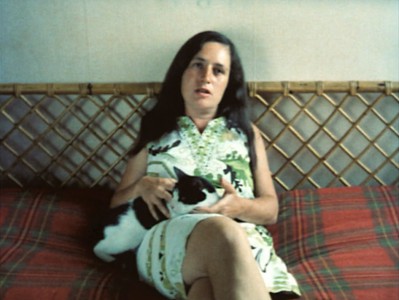
In 1923, sensing the gathering storm of “fear, danger, and catastrophe” in Germany, the composer Arnold Schoenberg wrote a devastatingly prescient and heartbreaking letter to his former friend, the painter Wassily Kandinsky. Schoenberg aligned his fate with that of all Jews, knowing they were soon to face exile or violent death. Straub-Huillet’s film, a recitation both of Schoenberg’s letter and Bertolt Brecht’s 1935 speech to the International Congress in Defense of Culture, is a fierce condemnation of anti-Semitism, German crimes against humanity, and the barbaric war machine of capitalism.
